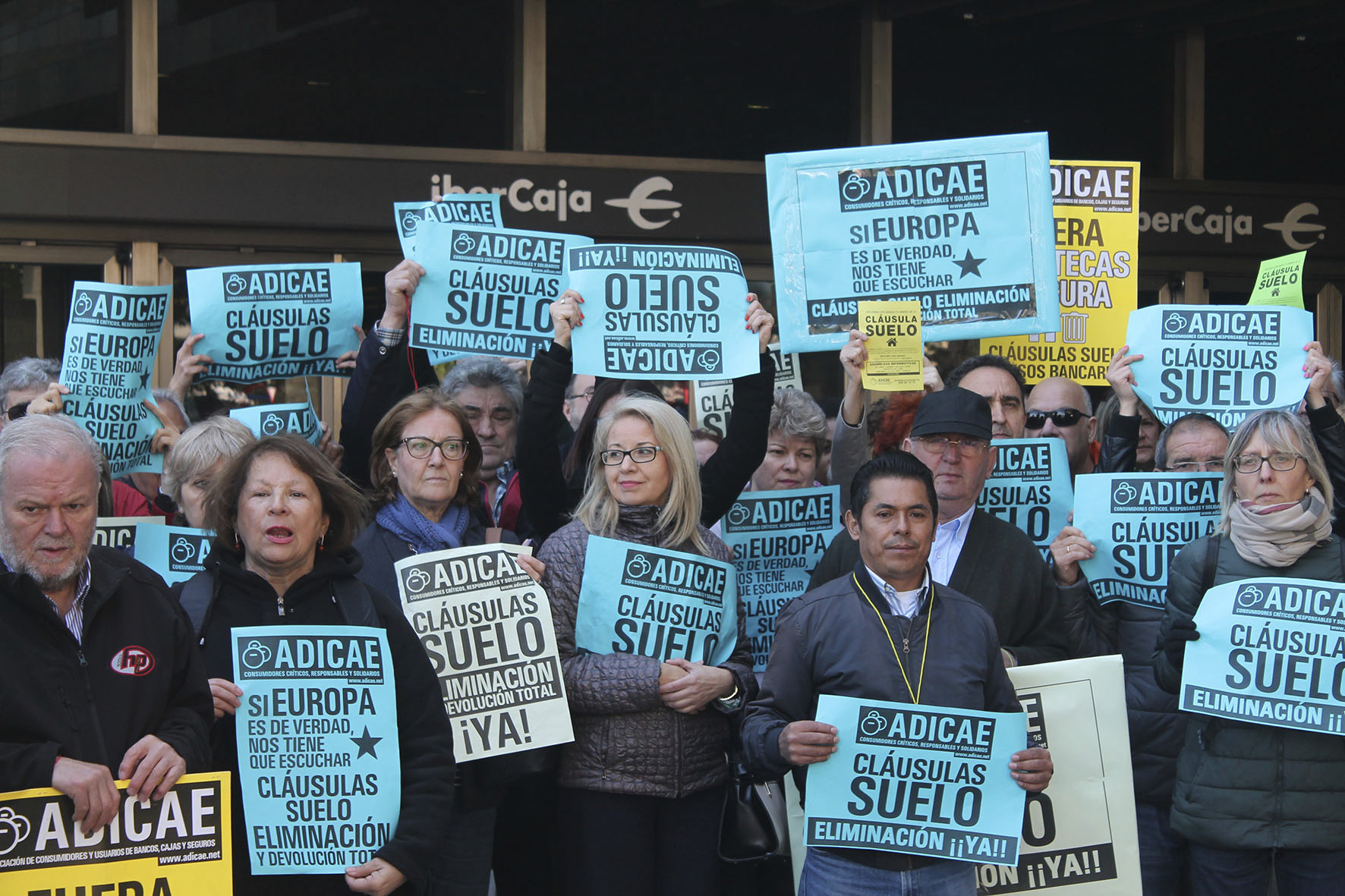The Civil Chamber of the Supreme Court has agreed to take to the Court of Justice of the EU (CJEU) the case opened by Adicae against a hundred financial entities to declare the nullity of its floor clauses and order the restitution of the money overcharged.
The decision of the Supreme, which was opposed by the association of consumers and users and also by the Supreme Prosecutor’s Office, not only delays the decision on whether or not to ratify the sentence that declared that massive nullity. Both the arguments developed in the order and the literalness of the questions posed to the CJEU.
The plenary of the Supreme sees “extremely difficult” that it can be determined in a general way if in the enormous number of cases to which the decision would reach it can be established that the entities were not transparent when transferring the information on the clause, which put a minimum -not a maximum- to what could be charged in interest to the client.
The idea of the TS is that a sentence of this type would mean putting in the same bag hundreds of clauses drafted differently by different entities over the years, as well as reaching very diverse categories of users (young people, mortgaged, etc.) . Doing so, the magistrates maintain, could contravene the CJEU’s criterion that the circumstances of each specific case must be examined.
The Chamber presided over by Judge Francisco Marín Castán poses two questions to the CJEU. The first if the European regulations cover “the abstract prosecution, for the purposes of transparency control within the framework of a collective action, of clauses used by more than a hundred financial entities, in millions of banking contracts, without taking into account the level of pre-contractual information offered on the legal and economic burden of the clause, nor the rest of the concurrent circumstances in each case, at the time of contracting”.
The second question focuses on the variety of those affected. He wants the CJEU to clarify whether it is compatible with European directives that “an abstract control of transparency be carried out from the perspective of the average consumer when several of the contract offers are addressed to different specific groups of consumers, or when there are multiple predisposing entities with very different economic and geographical areas of business, over a very long period of time in which public knowledge of such clauses was evolving”.
Sending the preliminary ruling to the CJEU had been supported by some of the affected entities. The prosecutor in the case, Adrián Zazosa Hernández, had objected, emphasizing that a general pronouncement on the nullity of the clauses and the restitution of the funds to the users did not close the door for the entities to oppose in the specific cases, presumably scarce, under very specific circumstances.
After knowing the resolution, Adicae has pronounced harshly: “The shameful, not to say ignominious, resolution of the Civil Chamber of the Supreme Court, after more than 12 years of ADICAE’s macro-demand for mortgage land, with two resolutions favorable in first and second instance and with millions of consumers still involved in the courts at all levels showing a very serious hindrance in the functioning of Justice and crushing hundreds of thousands of consumers whom the banks, under the ruse of the “friendly agreement “, has defrauded, at least, half of what the ordinary courts have been recognizing users for the abuse of floor clauses (with costs for the convicted entities)”.
And he continues: “After having left millions of consumers, small professionals and businessmen without any solution and therefore defrauded of their legitimate interests, the First Chamber of the Supreme Court kicks forward to evade its responsibility, regrettably returning the matter to the first days, from more than 12 years ago under the false ones and to Europe under the false criteria by which millions of consumers have been defrauded in Spain by the disastrous reactionary conservative mantra of the Spanish justice system of remission of massive conflicts of consumers to the so-called ‘vice of consent’, that is, to the ‘one-by-one’ analysis of widespread fraud”.
An estimate of the class action lawsuit would facilitate the recovery of the funds collected by the floor clauses. As for the substance of the decisions in each case, little will change, since in practically all the cases that are brought to justice, the consumer wins the lawsuit against the financial institution.
Conforms to The Trust Project criteria
















